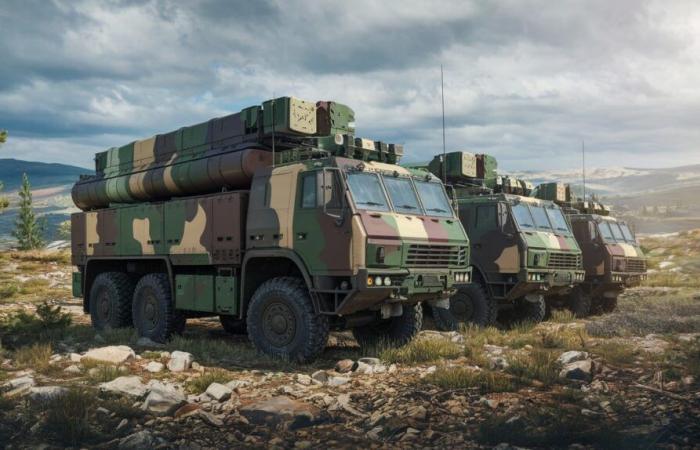Taiwan strengthens its defense with the reception of its first American HIMARS. A strong signal sent to China against a backdrop of growing tensions. What impact on the balance of forces in the Taiwan Strait?
Faced with China's increasingly assertive territorial ambitions, Taiwan is seeking to strengthen its self-defense capabilities. The island has just reached an important milestone with the receipt of its first American HIMARS multiple rocket launchers, considered formidable weapon systems.
Taiwan strengthens its anti-missile defense
According to an announcement from the Taiwanese Ministry of Defense this Wednesday, the island received a first delivery of 11 HIMARS units out of the 29 ordered from the United States. These truck-mounted precision fire systems are capable of launching multiple guided rockets simultaneously.
Neither the contract amount nor the full delivery schedule has been revealed. But this acquisition is part of Taipei's desire to continuously modernize its defensive arsenal in the face of increasing military pressure exerted by Beijing in recent years.
Weaponry that has proven itself in Ukraine
The HIMARS demonstrated their formidable effectiveness on the Ukrainian battlefield against the Russian invasion. Their range, precision and mobility make them weapons of choice for striking deep into enemy lines.
By adopting it, Taiwan is sending a strong signal of its determination to defend itself in the event of an attack from mainland China. Beijing views the island as a renegade province to be reunified, by force if necessary.
Washington, crucial support for Taiwan
The United States is historically Taiwan's main ally and its largest arms supplier. Over the past 50 years, Washington has sold billions of dollars worth of military equipment to the island, regularly angering Beijing.
Despite a policy of “strategic ambiguity,” the United States appears determined to help Taiwan defend itself in the event of Chinese aggression. Crucial support as the Taiwanese forces would be largely outnumbered and outgunned by the People's Liberation Army.
Record military spending in Taiwan
To face the threat, Taiwan has continued to increase its defense budget in recent years. In 2024, it is expected to reach an unprecedented level of $19 billion, and continue to climb in the following years.
Beyond arms purchases, the island is also seeking to strengthen its capacity to produce its own weapons. The objective is to be able to support a possible blockade or invasion over time by relying on its own resources.
What impact on Sino-Taiwanese relations?
The arrival of the HIMARS in Taiwan will not fail to arouse the ire of Beijing, which vehemently denounces any sale of American arms to what it considers to be a rebel province. China sees this as interference in its internal affairs and an encouragement to Taiwanese desires for independence.
However, this renewed tension should not fundamentally modify the strategic balance in the Taiwan Strait. Beijing has overwhelming military superiority and can count on a substantial deterrent arsenal, including a nuclear strike force.
More than a direct threat, the HIMARS are above all a means for Taiwan to show its determination to resist and to increase the potential cost of Chinese aggression. A way of maintaining the status quo by strengthening its dissuasive posture.
The future of Sino-Taiwanese relations in question
Beyond the military aspect, the reception of HIMARS by Taiwan highlights the complexity and issues of relations between the island, mainland China and the United States. A fragile balance where strategic, diplomatic and economic considerations mingle.
As tensions continue to grow in the Taiwan Strait, the question of the future of the island and its relations with Beijing remains more open than ever. Between the desire for self-determination, military pressure and the play of the great powers, Taiwan is navigating through troubled waters.
One thing is certain: the strengthening of its anti-missile defense capabilities with American HIMARS constitutes a new parameter in this complex equation. A strong message sent to Beijing, but also a risky bet to maintain a fragile status quo. The future of Sino-Taiwanese relations promises to be turbulent.






